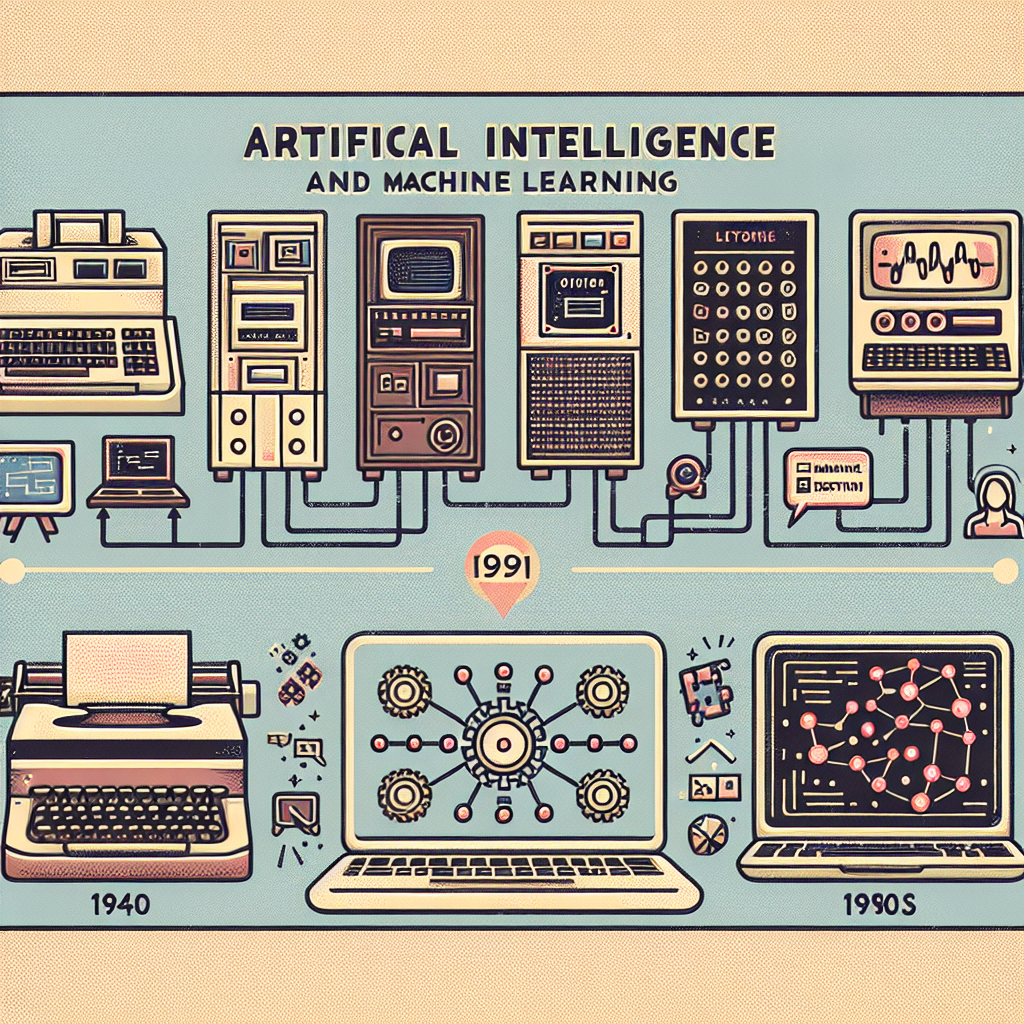The Evolution of Artificial Intelligence and Machine Learning
Artificial Intelligence (AI) and Machine Learning (ML) have become hot topics in recent years, with advancements in technology and increased computing power driving their rapid evolution. From simple rule-based systems to complex neural networks, AI and ML have come a long way in a relatively short period of time. In this article, we will explore the history and evolution of AI and ML and discuss their potential future impact on society.
Early Beginnings
The idea of artificial intelligence can be traced back to ancient times, with myths and legends of mechanical men and thinking machines appearing in various cultures. However, the modern concept of AI emerged in the 1950s, with the development of the first neural networks and the birth of the field of cognitive science. In 1956, the term “artificial intelligence” was coined by John McCarthy, who organized the famous Dartmouth Conference that is considered the birth of AI as a field of study.
Early AI systems were based on symbolic reasoning and logic, with programs written to follow rules and make decisions based on predefined criteria. These systems were limited in their capabilities and were unable to learn from experience or adapt to new situations. However, they laid the foundation for future developments in AI and set the stage for the emergence of machine learning.
Machine Learning Emerges
Machine learning, a subset of AI, focuses on the development of algorithms that can learn from and make predictions or decisions based on data. The concept of machine learning dates back to the 1940s, with the development of early neural networks and the introduction of the Perceptron algorithm in the 1950s. However, it wasn’t until the 1980s and 1990s that machine learning really began to take off, with the introduction of new algorithms and techniques such as support vector machines and decision trees.
One of the key developments in machine learning was the introduction of deep learning, a type of neural network with multiple layers of interconnected nodes. Deep learning has revolutionized the field of AI, enabling systems to learn complex patterns and relationships in data and make more accurate predictions. Deep learning has been used in a wide range of applications, from image and speech recognition to natural language processing and autonomous vehicles.
The Rise of Big Data
The evolution of AI and machine learning has been driven in large part by the rise of big data, the massive amounts of digital information generated by modern society. Big data provides the raw material for AI systems to learn from, enabling them to analyze and make sense of vast quantities of information in real-time. The combination of big data and advanced algorithms has enabled AI systems to achieve unprecedented levels of performance and accuracy in a wide range of tasks.
The Future of AI and Machine Learning
As AI and machine learning continue to evolve, their potential impact on society is becoming increasingly apparent. From self-driving cars to personalized medicine, AI and ML are poised to revolutionize countless industries and transform the way we live and work. However, there are also concerns about the ethical and social implications of AI, including issues of bias, privacy, and job displacement.
In the coming years, we can expect to see even more powerful AI systems that are capable of learning and adapting in real-time, as well as the development of new applications and use cases for AI and ML. As the technology continues to advance, it will be important for society to grapple with the ethical and policy implications of AI and ensure that its benefits are equitably distributed.
FAQs
Q: What is the difference between artificial intelligence and machine learning?
A: Artificial intelligence is a broad field that encompasses the development of intelligent systems that can perform tasks that typically require human intelligence, such as reasoning, problem-solving, and decision-making. Machine learning is a subset of AI that focuses on the development of algorithms that can learn from and make predictions or decisions based on data.
Q: How is deep learning different from other types of machine learning?
A: Deep learning is a type of machine learning that uses neural networks with multiple layers of interconnected nodes to learn complex patterns and relationships in data. Deep learning has revolutionized the field of AI by enabling systems to achieve unprecedented levels of performance and accuracy in tasks such as image and speech recognition.
Q: What are some of the key applications of AI and machine learning?
A: AI and machine learning are being used in a wide range of applications, including image and speech recognition, natural language processing, autonomous vehicles, healthcare, finance, and cybersecurity. These technologies have the potential to revolutionize countless industries and transform the way we live and work.
Q: What are some of the ethical concerns surrounding AI and machine learning?
A: There are a number of ethical concerns surrounding AI and machine learning, including issues of bias, privacy, and job displacement. AI systems can inadvertently perpetuate existing biases in data, leading to discriminatory outcomes. There are also concerns about the privacy implications of AI systems that collect and analyze personal data. Additionally, there are concerns about the potential for AI to automate jobs and displace human workers.
In conclusion, the evolution of artificial intelligence and machine learning has been driven by advancements in technology, increased computing power, and the rise of big data. From early rule-based systems to complex neural networks, AI and ML have come a long way in a relatively short period of time. As these technologies continue to evolve, their potential impact on society is becoming increasingly apparent, with the potential to revolutionize countless industries and transform the way we live and work. However, there are also concerns about the ethical and social implications of AI, including issues of bias, privacy, and job displacement. It will be important for society to grapple with these issues and ensure that the benefits of AI and ML are equitably distributed.

